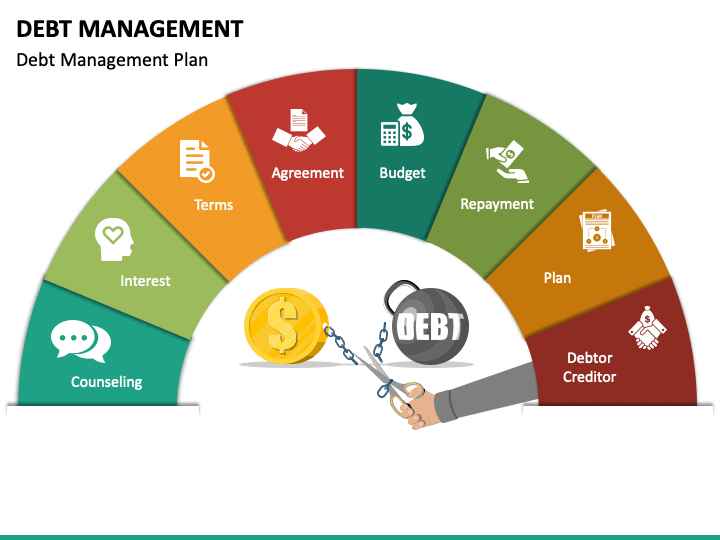Financial Obligation Combination vs. Financial Debt Settlement: More Discussion Posted Here
Financial Obligation Combination vs. Financial Debt Settlement: More Discussion Posted Here
Blog Article
Everything You Required to Know Concerning Developing a Personalized Financial Debt Administration Strategy
In the world of personal financing, devising a tailored financial obligation management strategy is usually the keystone of achieving financial security and peace of mind. As you browse the complexities of producing an individualized financial obligation management strategy, recognizing the ins and outs of each action is key to your economic success.
Evaluating Your Current Financial Debt Situation
One should initially perform an extensive evaluation of their present financial debt obligations prior to developing an effective financial debt administration plan. Produce an in-depth checklist of each financial obligation, including the complete quantity owed, interest rates, minimum regular monthly payments, and due days.
After compiling this details, determine your overall debt-to-income proportion by splitting your regular monthly financial debt settlements by your monthly revenue. This ratio is a key sign of your capability to manage existing debt levels properly. In addition, assess your debt report to identify any type of errors or discrepancies that may be impacting your credit history. Comprehending these elements of your financial scenario will lead you in developing a tailored financial debt management plan customized to your certain requirements and goals.
Setting Financial Goals and Targets

When setting economic goals, it is essential to be particular, quantifiable, attainable, pertinent, and time-bound (CLEVER) As an example, you may set a goal to repay a particular quantity of financial debt within a certain timespan, such as reducing your bank card equilibrium by $5,000 in the following 12 months - More Discussion Posted Here. By establishing clear targets such as this, you can track your development and remain motivated to accomplish your financial obligation monitoring purposes
Furthermore, consider prioritizing your financial debts based on variables such as rate of interest, impressive balances, and settlement terms. By focusing on high-interest financial debts initially, you can conserve money over time and accelerate your trip towards monetary liberty. Remember, everyone's economic situation is one-of-a-kind, so customize your targets and objectives to fit your private demands and scenarios.
Producing a Realistic Spending Plan
Crafting a distinct spending plan is a basic step in efficient financial obligation management and monetary preparation. A practical budget plan serves as a roadmap for your economic health, aiding you track your income, costs, and financial debt settlements. To develop a sensible spending plan, begin by providing all your resources of income. This includes your wage, side hustle earnings, or any type of other financial inflows. Next, brochure all your taken care of costs such as rent or home loan, energies, insurance policy, and lending payments. Variable expenditures like grocery stores, amusement, and transportation must additionally be consisted of. Separate between wants and needs to focus on vital expenses and identify locations where you can reduce back.
When setting budget limitations, be truthful with on your own about your costs practices and monetary obligations. Assign a portion of your income in the direction of repaying financial obligation while guaranteeing you have some funds for financial savings and emergency situations. On a regular basis evaluation and adjust your budget plan as needed to remain on track with your economic goals and debt payment strategy. By sticking to a reasonable spending plan, you can efficiently handle your financial debt and work towards a much more safe and secure economic future.
Exploring Financial Obligation Repayment Techniques
After establishing a practical budget plan, the next crucial action in effective debt monitoring is to discover numerous debt payment check this methods. One typical strategy is the snowball method, where you concentrate on paying off the tiniest financial obligations initially while making minimal repayments on larger financial obligations. This method can help build momentum as you see smaller financial obligations being removed, giving motivation to take on bigger ones.
Another technique is the avalanche technique, which entails focusing on debts with the highest possible rate of interest. By targeting high-interest financial debts initially, you can decrease the general amount you pay in passion gradually. This method may be a lot more affordable over time, even though it might take longer to see specific financial obligations completely paid off.
Financial debt loan consolidation is an additional choice where you integrate several debts right into a solitary financing with a lower rate of interest. This can streamline your payment process and possibly reduce the complete rate of interest paid. Nonetheless, it's necessary to carefully think about the costs and terms related to combination to guarantee it's the right selection for your financial scenario.
Monitoring and Changing Your Plan

Adjusting your plan might involve reapportioning funds to tackle high-interest financial obligations initially, discussing with financial institutions for reduced passion prices or much better settlement terms, or exploring added revenue resources to speed up debt settlement. As your financial situation advances, your debt management strategy must adjust appropriately to continue to be efficient. By remaining flexible and positive in monitoring and changing your strategy, you can maximize your efforts in the direction of repaying your debts efficiently and achieving your financial goals.
Final Thought
Finally, creating a tailored financial debt monitoring plan includes examining current financial debt, establishing monetary goals, developing a practical spending plan, checking out repayment approaches, and monitoring and readjusting the plan as needed. By complying with these steps, people can take control of their monetary situation and job towards becoming debt-free. It is necessary to remain self-displined and dedicated to the strategy in order to attain long-term monetary stability.
One need to first carry out a comprehensive examination of their current financial debt commitments before formulating an efficient financial obligation administration strategy.After establishing a sensible budget, the next crucial action in reliable debt management is to explore numerous financial debt repayment strategies - More Discussion Posted Here.To properly manage your financial obligation, continual monitoring and adjustment of your debt administration plan are vital elements for long-term economic security.Adjusting additional info your strategy might include reallocating funds to deal with high-interest financial debts initially, bargaining with financial institutions for lower passion prices or far better repayment terms, or exploring additional income resources to quicken financial obligation settlement.In verdict, producing an individualized financial debt monitoring plan involves assessing existing financial debt, establishing economic objectives, creating a reasonable spending plan, discovering payment approaches, and surveillance and readjusting the plan as required
Report this page